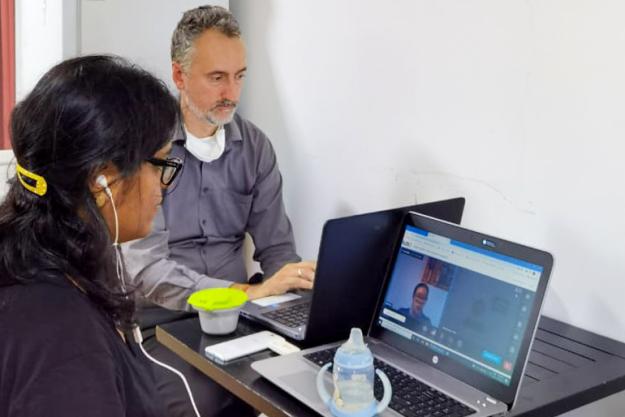
THE HAGUE, Netherlands–22 October 2021–Representatives from French speaking Member States in Africa participated in the Training Course on Legislative and Regulatory Issues in Chemical Security held online by the Organisation for the Prohibition of Chemical Weapons (OPCW) from 16 to 21 October.
This was the third in a series of four courses aimed at developing the capacities of OPCW Member States to adopt appropriate chemical security legal and regulatory frameworks. The course was designed to address the specific needs of French speaking Member States in Africa.
In her remarks, the Head of the OPCW’s Implementation Support Branch noted the strong interest of Member States from Africa in enhancing their national legal frameworks on chemical security: “This series of training courses forms an important part of OPCW’s capacity-building support in the field of chemical security from a legislative perspective. Through these interactions, Member States enhance their understanding of the importance of appropriate legal and regulatory frameworks on chemical security.”
During the training, the Technical Secretariat clarified the mandate of the OPCW with regard to chemical security and described the ongoing efforts to enhance Member States’ awareness and understanding of relevant legal and regulatory issues. The participants discussed how implementing legislation on the Chemical Weapons Convention reinforces chemical security, including by prohibiting and penalising illicit activities involving chemical weapons and establishing a control regime for scheduled chemicals and related facilities. They also discussed their approaches to the process of developing domestic regulations and learned about various voluntary initiatives by the chemical industry and chemical distributors to strengthen chemical security.
The participants concluded that, as chemical trade and chemical industries continue to grow in Africa, the corresponding increase in the risk of potential misuse of chemicals requires that Member States review their existing national legal frameworks on chemical security to identify gaps and address them. A number of participants highlighted the importance of developing appropriate laws and regulations and of enhancing their national capacities to effectively implement chemical security measures and called on the Technical Secretariat to continue its capacity building support to Member States in these areas.
Forty representatives from the following 12 Member States participated in the event: Algeria, Burkina Faso, Cameroon, Cote d’Ivoire, Democratic Republic of Congo, Guinea, Madagascar, Mauritania, Mauritius, Morocco, Togo, and Tunisia. Representatives from the International Council of Chemical Associations, International Chemical Trade Association, Pacific Northwest National Laboratory, and INTERPOL were also present to share their expertise and discuss various initiatives aimed at enhancing national legal frameworks on chemical security.
Background
The OPCW’s Implementation Support Branch runs a range of programmes aimed at supporting Member States in national implementation of the Chemical Weapons Convention, including in the development and adoption of implementing legislation. They include awareness raising and capacity building activities, such as National Legislative Review Forums and legal workshops.
As the implementing body for the Chemical Weapons Convention, the OPCW, with its 193 Member States, oversees the global endeavour to permanently eliminate chemical weapons. Since the Convention’s entry into force in 1997, it is the most successful disarmament treaty eliminating an entire class of weapons of mass destruction.
Over 98% of all declared chemical weapon stockpiles have been destroyed under OPCW verification. For its extensive efforts in eliminating chemical weapons, the OPCW received the 2013 Nobel Peace Prize.
